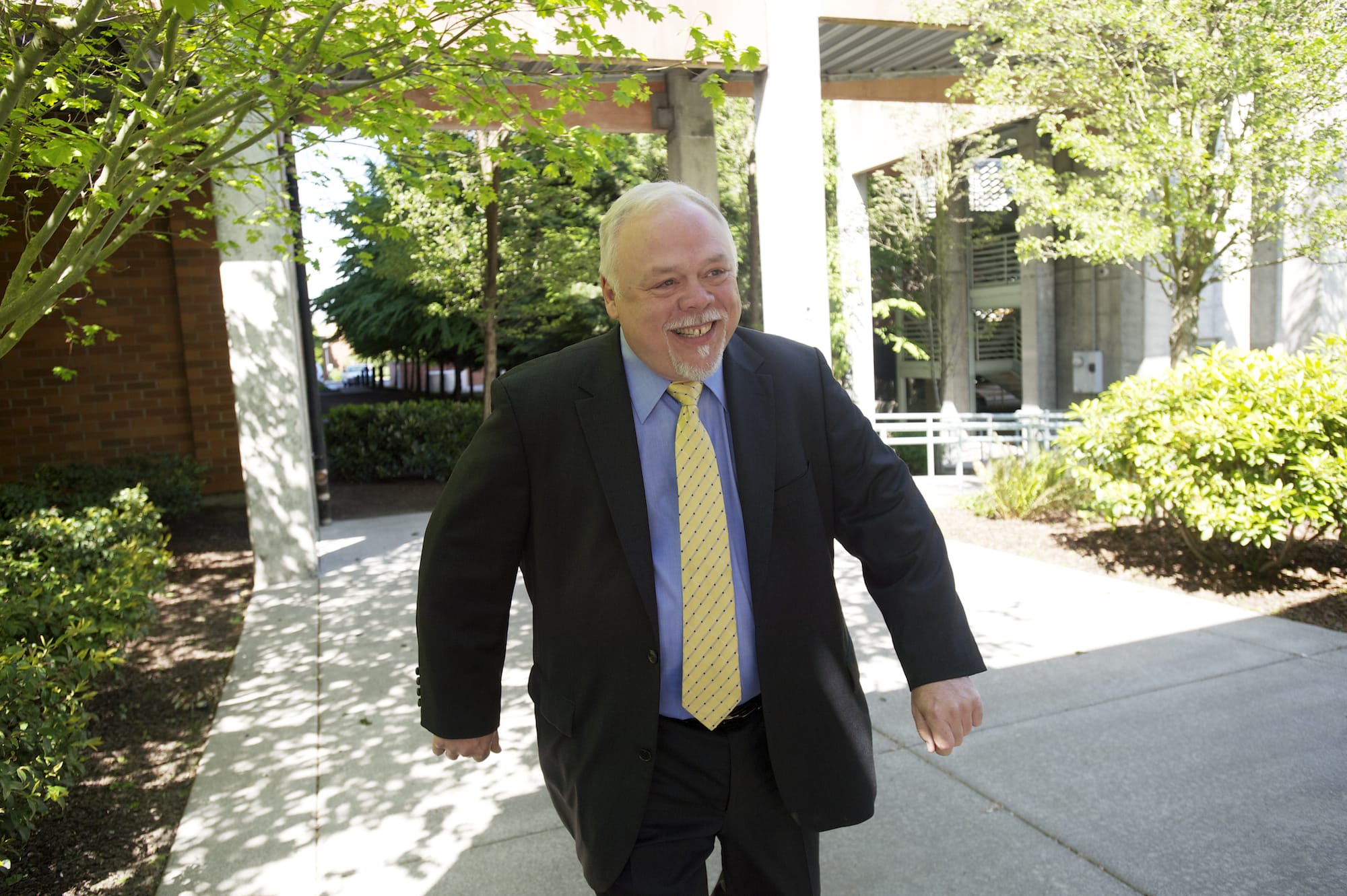Don Benton, director of Clark County Environmental Services, plans to raise fees to pay off a costly settlement the county owes for violating the Clean Water Act.
The proposals range from annual surcharges above the $33 a year homeowners currently pay in clean water fees, to special fees for the owners of private roads. One option would even assess a six-figure “litter fee” to The Columbian.
None of the options are considered “recommendations,” Benton said at a Wednesday work session. “It’s our duty to present as many options as possible.”
County commissioners will ultimately make a decision on which proposals to investigate further.
The proposals, Benton said, were created by 14 managers within environmental services as a way of generating more money for the clean water program.
The terms of the county’s settlement calls for it to pay $3 million over a six-year period to the Lower Columbia Fish Recovery Board. It followed a federal court ruling in June that said the county had violated the law for three years and would be liable for damages.
The county’s six-year payment cycle will begin in June 2015.
The county is also responsible for paying $600,000 in court fees. That money is due later this spring.
The terms of the settlement also require the county to bring its clean water program into compliance with state and federal laws, which will cost the county in the years ahead. The clean water program is facing a $1.6 million shortfall.
Among the options proposed for backfilling the $3.6 million the county owes would be an additional surcharge on homeowners — as much as $22 for 2015, to as little as $4.50 for the five-year period between 2015 and 2019.
The fee increases are necessary, Benton said, to correct mistakes made by the previous board of commissioners and within environmental services itself. In 2008, the county refused to adopt state standards for managing polluted runoff, dismissing them as an unreasonable burden to place on private developers.
None of the proposals presented Wednesday had been vetted by county attorneys, Benton said Thursday in an interview. They include a proposal to charge a $150,000 annual “litter fee” to daily newspapers that are produced and distributed in Clark County with a circulation of more than 28,500. Only The Columbian meets those parameters.
The newspaper would be assessed a small fee for every paper printed under the proposal.
“Our management team believes that the listed options are within their authority,” he said. “Certainly, if (commissioners) choose any of those options, there will be more work.”
One option that was dismissed Wednesday as being too complicated was charging fast-food restaurants a litter fee. It would be too difficult to calculate how much potential litter waste leaves restaurants and then assess a fee, Benton said.
Newspapers, though, are easy, because they track and publish their circulation numbers, which they use to set advertising rates.
“There’s already an auditing system in place for newspapers,” Benton said Wednesday. “You already know how many they put out. One daily paper with a circulation of 28,000 distributes 1.25 million pages of paper a week. It’s a pretty significant amount of litter.”
There are questions, however, about whether a litter tax would be allowed under the law.
Ted Gathe, city attorney for the city of Vancouver, said he wasn’t aware of a state law that would allow counties to impose a special fee on a business located inside a city.
And, while Benton said newspapers are among the “top five” polluters in the county, that’s debated elsewhere.
Brian Carlson, public works director for the city of Vancouver, said he wasn’t aware of newspapers being a “problematic source of litter within the community.”
“(Businesses) aren’t causing the litter; it’s people and their practices causing litter,” Carlson said. “Maybe the focus should be on that.”
In response to questions about whether the proposal would apply to all county newspapers, not just The Columbian, Benton said that was a policy question that would be left to the board of commissioners.
Commissioner Tom Mielke previously supported a litter tax on newspapers in 2011. It was briefly discussed before the idea was scuttled for potentially not being viable.
The proposal comes on the same week that commissioners Mielke and David Madore approved a one-year contract to publish legal notices in The Reflector, a weekly, instead of The
Columbian, a move that came against the recommendation of county staff.
The decision could potentially cost The Columbian thousands of dollars a year in advertising revenue.
Scott Campbell, publisher of The Columbian, said he hadn’t heard of the fee proposal before Thursday, but said he would work to fight it if it were imposed.
“If I receive a bill for $150,000,” Campbell said, “I doubt I’ll pay it.”
Benton said there was no timeline for the county commissioners to discuss the proposals.



